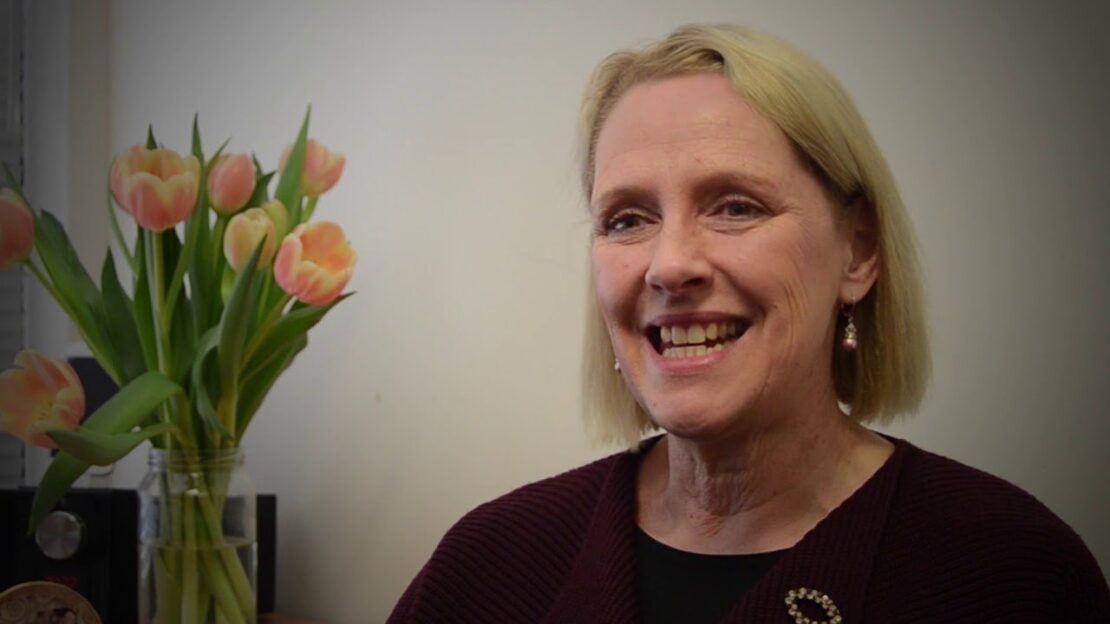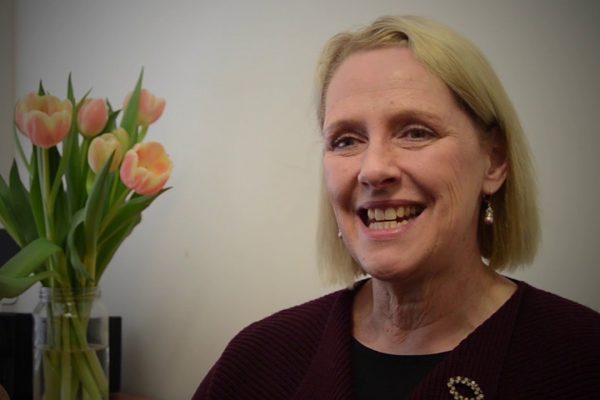I caught up with some former colleagues recently. It was a lovely night of remembering – I’d forgotten what a good time we all had had when we worked together! One of our group retired a few years ago and not long after, his beloved wife died suddenly. It was a devastating loss for him and his conversation throughout the evening was infused with references to and stories about her. He is experiencing a deep, deep loss.
Toward the end of the night, he described his weekly routine which includes a Wednesday visit to his wife’s grave. I was touched by this. A simple and yet profound gesture acknowledging that her life had changed but not ended. As he described his grave pilgrimage, I could see what a comfort it was to him. He seemed lighter, somehow, when he spoke of it. Driving home the image that stayed with me was of hope.
Sometimes we confuse hope with optimism. In the world of faith seeking understanding through hope, along with faith and love, is a virtue. It is based in a confidence and trust of a better future. It is a sense that tomorrow might not be better, but that eventually things will be OK. It is hope which sustains and carries each believer through life.
It is also described as an eschatological virtue – hope has its foundation in the firm trust of God’s promises for the future. That God is with us and that all will be well, eventually.
But hope, even for people of faith, can be an elusive virtue! Those of us who have known or are, perhaps, experiencing deep grief know that it is a vulnerable time. We may become acutely sensitive about things that don’t usually bother us. Tears are never far and the mornings seem to bring weariness rather than relief. In those early days the first moment of waking comes as a shock when we so quickly realise the new reality in which we find ourselves.
For some, this intense vulnerability can lead us to being fearful. American researcher Brene Brown argues that “Vulnerability is the birthplace of innovation, creativity and change” and when we enter into this place of feeling and being vulnerable, courage emerges. (Daring Greatly, p. 206-212). The poet, David Whyte, describes vulnerability in this way:
The only choice we have as we mature is how we inhabit our vulnerability, how we become larger and more courageous and more compassionate through our intimacy with disappearance, our choice is to inhabit vulnerability as generous citizens of loss, robustly and fully, or conversely, as misers and complainers, reluctant, and fearful, always at the gates of existence, but never bravely and completely attempting to enter, never wanting to risk ourselves, never walking fully through the door. (Vulnerability – onbeing.org)
The grief pilgrimage can be long and arduous and it can cower even the most robust of spirits. For people formed within the Catholic tradition November is a reminder of this as we remember and pray for our dead – those whose lives have been changed but not ended.
And what I learned from my friend is that even with grief, life can be a pilgrimage of hope. Jurgen Moltman, a German theologian, wrote a seminal book Theology of Hope (1964). His worldview was formed by World War 2 – drafted for the German army at age 16, Moltman surrendered to a British soldier and then spent time as a POW from 1945-1948. During this time he observed that people who had hope were able to sustain themselves even in the midst of suffering. They were able to see that tomorrow probably wasn’t going to be better – but they had confidence that eventually something good would emerge.
In Fratelli Tutti Pope Francis offered an invitation to everyone for renewed hope because hope speaks: of something deeply rooted in every human heart, independently of our circumstances and historical conditioning. Hope speaks to us of a thirst, an aspiration, a longing for a life of fulfillment, a desire to achieve great things, things that fill our heart and lift our spirit to lofty realities like truth, goodness and beauty, justice and love. Hope is bold… it can open us up to grand ideals that make life more beautiful and worthwhile. Let us continue, then, to advance the paths of hope. (n.55)
And the words of Joan Chittister might also help with this:
Hope and despair are not opposites. They are cut from the very same cloth, made from the very same material, shaped from the very same circumstances. Every life finds itself forced to choose one from the other, one day at a time, one circumstance after another. The sunflower, that plant which in shadow turns its head relentlessly toward the sun, is the patron saint of those in despair. When darkness descends on the soul, it is time, like the sunflower, to go looking for whatever good thing in life there is that can bring us comfort. Then we need music and hobbies and friends and fun and new thought.
Despair colours the way we look at things, makes us suspicious of the future, makes us negative about the present. Most of all, despair leads us to ignore the very possibilities that could save us, or worse, leads us to hurt as we have been hurt ourselves.
Hope, on the other hand, takes life on its own terms, knows that whatever happens God lives in it, and expects that, whatever its twists and turns, it will ultimately yield its good to those who live it consciously, to those who live it to the hilt.
When tragedy strikes, when trouble comes, when life disappoints us, we stand at the crossroads between hope and despair, torn and hurting. Despair cements us in the present. Hope sends us dancing around dark corners trusting in a tomorrow we cannot see because of the multiple paths of life which we cannot forget.
Life is not one road. It is many roads, the walking of which provides the raw material out of which we find hope in the midst of despair. Every dimension of the process of struggle is a call to draw from a well of new understandings. It is in these understandings that hope dwells. It is that wisdom that carries us beyond the dark night of struggle to the dawn of new wisdom and new strength. From Scarred by Struggle, Transformed by Hope by Joan Chittister (Eerdmans).
So, may our hopeful spirits grow! May the love of God surround us and may the days or our lives be characterised by new wisdoms and strengths.
By Cathy Jenkins
Published: 15 November 2024




Comments
Add Comment